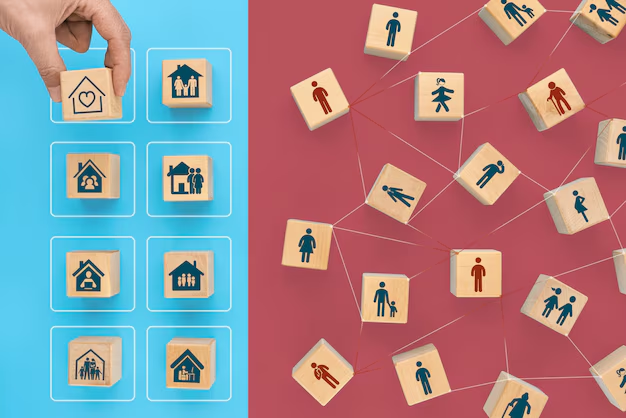Understanding the Meaning of "Promoting the General Welfare": A Comprehensive Guide
Throughout history, the phrase "promote the general welfare" has shaped discussions around governance, public policy, and social justice. As a cornerstone of the U.S. Constitution, it suggests a commitment to improving the well-being of all citizens, but its interpretation can be as varied as the issues it seeks to address.
The Constitutional Context of Promoting General Welfare
Origins in the U.S. Constitution
The phrase "promote the general welfare" appears in the Preamble of the U.S. Constitution and also in the Taxing and Spending Clause (Article I, Section 8). The Preamble sets the stage: it's not legally binding but paints a picture of the founders' intent. It aims for not just government integrity but also societal harmony and prosperity.
Legal Interpretations
- Broad Interpretation: Over time, courts often view this phrase as a directive allowing federal government intervention to aid economic stability and societal benefit. It provides leeway to initiate wide-ranging programs in education, healthcare, infrastructure, and more.
- Narrow Interpretation: Some argue that the phrase should focus on limited government roles, emphasizing personal freedom and minimal intervention in markets and personal lives.
Economic Implications of Promoting General Welfare
Public Policies on Welfare Systems
Governments worldwide design welfare programs to promote general welfare, addressing inequality and assisting vulnerable populations. Key welfare initiatives often include unemployment benefits, health care access, social security, and food assistance.
Purpose: Such systems aim to provide a safety net during hard times while ensuring stability and prosperity.
Challenges: Critics of welfare systems often cite dependency concerns, suggesting these programs could disincentivize work. Balancing benefits with incentives to work is a constant policy consideration.
Economic Growth and Stability
Promoting the general welfare also ties into bolstering economic stability. Policymakers often view actions such as tax reforms, infrastructure investment, and education funding as strategies to foster employment and economic progress.
- Long-term Stability: Investments in public goods encourage healthier, better-educated populations, which are crucial for sustained economic growth.
- Income Equality: Policies reducing wealth gaps - through progressive tax systems and increased wages - support broader economic welfare.
Business and General Welfare
Corporate responsibility increasingly aligns with promoting general welfare. Business ethics now often include:
- Environmental sustainability
- Fair labor practices
- Social impact strategies
These align with the broad goals of public welfare, reflecting consumer expectations and long-term corporate interests.
Health and Well-being: A Central Aspect of General Welfare
Access to Healthcare
A key component of promoting general welfare is ensuring robust healthcare access. This is seen in various legislations and public funding directed at making healthcare affordable and accessible for all citizens.
- Preventative Health: National policies often emphasize early intervention and preventative measures, improving public health outcomes and reducing healthcare costs over time.
- Universal Coverage: While approaches vary globally, many argue that universal health coverage best supports general welfare goals, believing it promotes societal equity.
Public Health Initiatives
Public health programs aiming at education, disease prevention, and nutritional support bolster general welfare.
- Community Health: Local initiatives can address unique demographic and regional challenges.
- Global Health Trends: Recent times have seen heightened attention to pandemics, emphasizing the importance of collaborative, worldwide public health strategies.
Social Considerations in Promoting General Welfare
Education as a Tool for Welfare
Education opens doors to opportunities, contributing significantly to the general welfare.
- Public Education Policies: Investments in education can reduce inequality and improve social mobility.
- Lifelong Learning: Encouraging skills development in adults ensures that citizens can adapt to changing job markets.
Social Justice and Welfare
Promoting social justice is another dimension of general welfare, addressing systemic inequalities and ensuring everyone has fair chances irrespective of their background.
- Civil Rights: Efforts to address racial, gender, and economic disparities are seen as directly promoting general welfare.
- Community Support Initiatives: Local government programs that support communities, combat poverty, and encourage civic engagement further these aims.
Environmental Responsibility and General Welfare
Sustainable Development
Environmental sustainability closely ties to general welfare, as a healthy ecosystem supports all life forms.
- Renewable Energy Investment: Policies supporting clean energy transitions benefit the environment and create economic opportunities.
- Conservation Efforts: Protecting natural habitats ensures resources for future generations while providing resilience to ecological disruptions.
Climate Change Adaptation
Addressing climate change is increasingly seen as integral to promoting the general welfare.
- Mitigation Strategies: Local and international efforts to reduce carbon emissions are part of this commitment.
- Community Resilience: Building infrastructures like resilient housing, disaster preparedness strategies, and support systems for affected communities maintain stability and well-being.
Practical Takeaways: Promoting General Welfare in Daily Life
Here’s how individuals and communities can interpret and contribute to the broader aim of promoting general welfare:
- 📚 Education: Engage in learning opportunities and advocate for lifelong education in your community.
- 🌿 Sustainability: Support and practice environmental sustainability; consider simple daily changes that reduce your ecological footprint.
- 💼 Civic Engagement: Participate in local governance and community-building activities that align with general welfare ideals.
- 📢 Advocacy: Use your voice for social justice causes, supporting policies and practices that promote equity and inclusion.
Promoting general welfare is a multifaceted objective requiring the interplay of public policy, societal change, and personal responsibility. It involves ongoing dialogue and action in economic, social, and environmental arenas, aiming for a more equitable, prosperous, and sustainable world.

Related Topics
- Are Illegal Immigrants Eligible For Welfare
- Can Illegal Aliens Get Welfare
- Can Illegal Immigrants Get On Welfare
- Can Illegal Immigrants Get Welfare
- Can Illegal Immigrants Get Welfare In California
- Can Illegal Immigrants Qualify For Welfare
- Can Illegals Get Welfare
- Can Police Force Entry For a Welfare Check
- Can Undocumented Immigrants Get Welfare
- Can You Do a Welfare Check Anonymously
